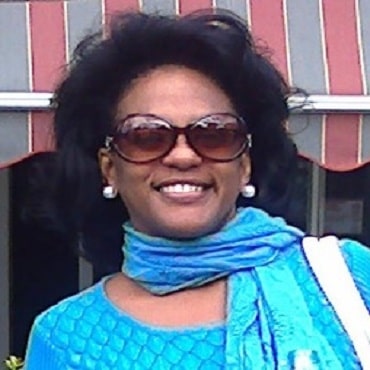Scientific Program

Iris Gladys Zayas Martinez
Tropical Medicine Institute Pedro Kouri (IPK)
Cuba
Title: Relationship between chronic infection by Toxoplasma gondii and Alzheimers disease
Biography:
Iris Gladys Zayas Martínez, 49 years old, graduated in medicine 29 years ago at the Medical University "Carlos J. Finlay" of Camagüey, Cuba. 2nd Degree Specialist in Microbiology, graduate of Master in infectious diseases and tropical diseases at the Institute of Tropical Medicine Pedro Kouri (IPK), Cuba.
Member of the Cuban Scientific Society of Parasitology and Microbiology for 22 years. I have participated in 18 national and international conferences and congresses in Cuba and in the 2nd international congress of the Girassol Clinic in Luanda, Angola. Publications: 5 scientific articles in national journals.
I am currently working in the department of parasitology, in the laboratory of Toxoplasma of the Tropical Medicine Institute Pedro Kouri (IPK). Cuba.
At this moment, a research project is underway (Toxoplasma gondii infection and Alzheimer's disease. Demonstration of possible association in Cuban senior citizens. It will be held in our Institute in collaboration with the Dementia Consultation of the Neurology Institute, Havana, Cuba.
Abstract
Toxoplasma gondii (T. gondii) is one of the most widely distributed neurotropic pathogens in the world; approximately, one third of the world population is infected by this parasite, the causative agent of Toxoplasmosis. Historically, chronic infection has been considered a latent stage and was only associated with pathogenesis in individuals with some compromise of their immune system. Alzheimer's disease (AD) is the most frequent of neurodegenerative diseases; it is also the most common cause of demential syndrome. The suggested conference is aimed at highlighting the main aspects that relate to chronic T.gondii infection and AD. Recent studies have shown that chronic infection by this pathogen causes neurophysiological changes, in wish three mechanisms are involved: the immune response to the parasite, hormonal changes and variations in neurotransmitters, all leading to neuroinflammation. All those relate the parasite with the pathogenesis of dementia, especially those that produce neurodegeneration. The role of T.gondii in the development of AD remains a hotly debated topic, with multiple investigations being carried out to try to link this parasite to that entity and determine whether infection by this entity is a risk factor or can play a role protector in the appearance of EA.
- Dementia
- Dementia Care & Awareness
- Alzheimers disease
- Neurodegenerative diseases
- Ageing & Dementia
- Biomarkers for Dementia
- Diagnostic Tools & Tests for Dementia
- Treatment Strategies & Drug Development
- Therapeutic Approach towards Dementia
- Clinical Trials & Study in Dementia
- Neuroimaging
- Recent Studies & Case reports

